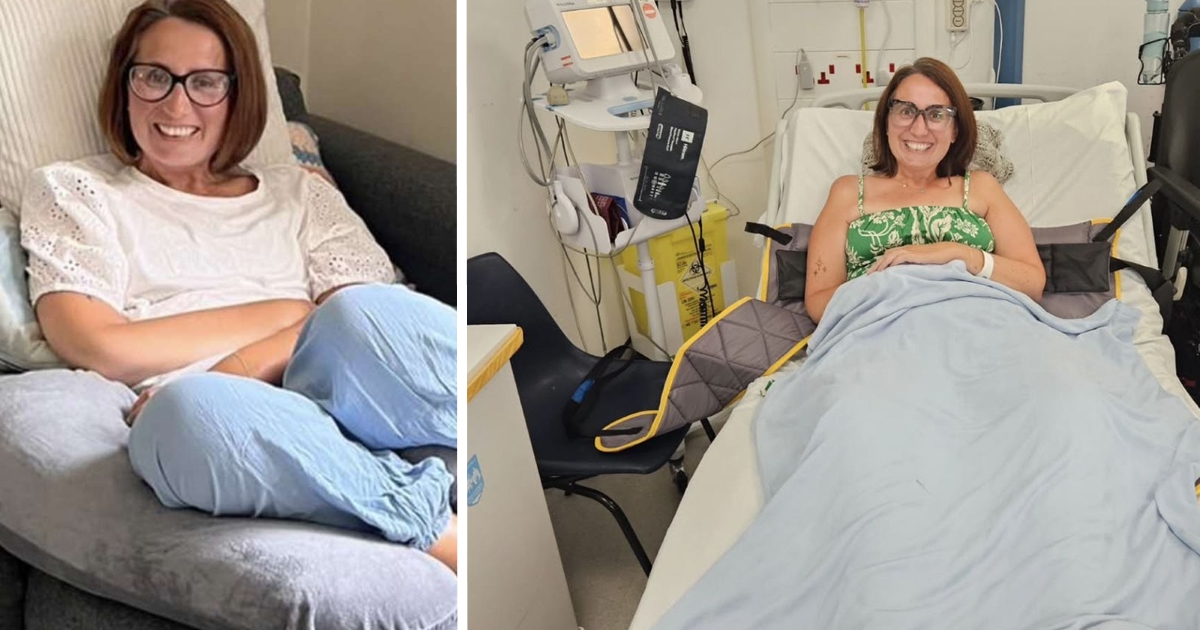Emma Bray, a 42‑year‑old mother from Barnstaple, England—and vocal right‑to‑die activist—has tragically ended her life by voluntarily stopping eating and drinking (VSED), driven by a heartbreakingly simple goal: prevent her children from watching her suffer through motor neurone disease (MND), which she described as “the worst disease possible.”
Diagnosed two years ago, Emma fought relentlessly, opening up about losing control of her limbs, speech, and eventually breathing. In an emotionally charged interview with *The Mirror*, she revealed, “I’ve had four different health professionals tell me I’ve got the worst disease possible… I struggle to eat, and it’s getting harder to breathe.” People covered her own words, detailing just how crippling her illness became.

Though she never wanted to die, Emma said, it was the only legal option she had to spare her teenage children—aged 15 and 14—from witnessing each harrowing stage. “My last bit of parenting I can do is limit the trauma they have to witness,” she shared, awaiting her daughter’s exam results so she could die at a moment that wouldn’t derail her childhood. NationalWorld chronicled her resolve.
Her final message—a video post from hospice shared on Instagram—outlined her wishes: that loved ones plant a tree, perform kindness, and remember her with love. “If you are reading this, I’ve finished my final spin round the sun,” Emma wrote, quoting Frank Turner: “Remember you get to dance another day but now you have to dance for one more of us.” UNILAD reported the poignant goodbye.
The moment reignited debates across social platforms. One tweet slammed the system:
“She starved herself to death to save her kids from MND’s horror. How is that legal?”
Another tweet praised her protective instinct despite the grim act:
“Brave mother chose love. She couldn’t save herself, but she saved their memory of her.”
Medical experts describe MND—often known in the U.S. as ALS—as a ruthless and irreversible shutdown of nerve cells controlling muscles. **Cleveland Clinic** classifies it as degenerative, leading patients ultimately to lose independence and respiratory function. UNILAD’s health guide walks through the stages.
A deeper tweet voiced both empathy and impatience with lawmakers:
“VSED was Emma’s only legal way out. UK’s assisted dying law fails its most vulnerable.”
Emma had campaigned for legal change via *Dignity in Dying*, urging MPs to allow terminal patients to chart their own end-of-life journey. She told *People* that if assisted-dying was available, she may never have gone through this painful route. The Guardian** noted a related global uptick** in right-to-die discussions.
Voluntary stopping of eating and drinking can stretch painlessly over 10–14 days—slower than physician-assisted methods—but is currently legal in England. Compassion & Choices defines VSED as one of the few legally permissible methods for mentally capable adults to end life in the UK. Economic Times reported on its legality and emotional weight.
The case also drew parallels to past tragedies, like Jean Davies in 2014 or Eluana Englaro in Italy—campaigners who died via self-imposed feeding restrictions—and Brittany Maynard in the U.S., who pursued physician-assisted death. Experts argue such individual acts underline gaps in assisted-dying legislation worldwide. Davies’ story, Englaro’s, and Maynard’s all spotlighted legal roadblocks and public compassion.
Mental-health professionals warn prolonged VSED carries physiological and psychological complications. But emotionally, families often describe it as more peaceful and controlled. Emma’s choice—though agonizing—allowed her to set the final scene. Bored Panda reflected public sentiment.
The kettle of policy reaction is boiling. UK lawmakers are considering bills that would allow terminally ill adults to receive medically assisted death within six months of prognosis—if mentally sound. Advocates say Emma’s death may fuel renewed momentum. Legal commentators urge accelerated passage.
For Emma’s teenage children, grieving begins in silence. Their mother shielded them from choking, speechlessness, and breathlessness—but also from memories of her decline. Their coping journey will be long, complicated by that absence she engineered lovingly.
In the final analysis, Emma Bray’s death forces a simple yet wrenching question: when the worst disease possible comes calling, should anyone have to die alone by choice—or should the choice include medical compassion?






